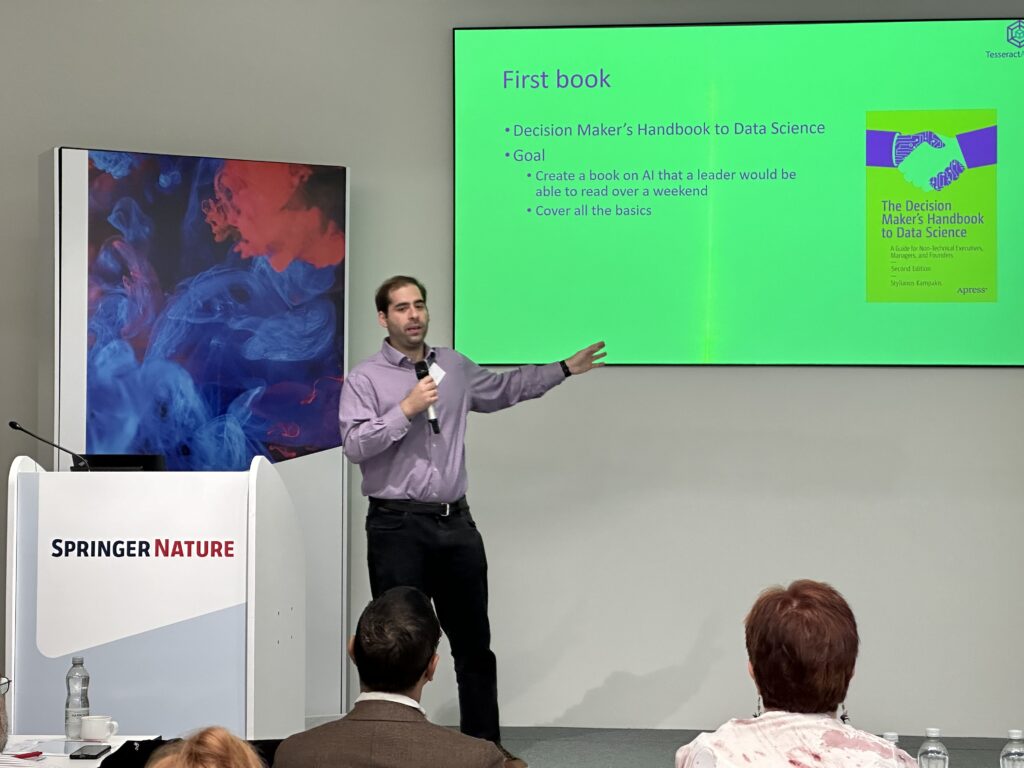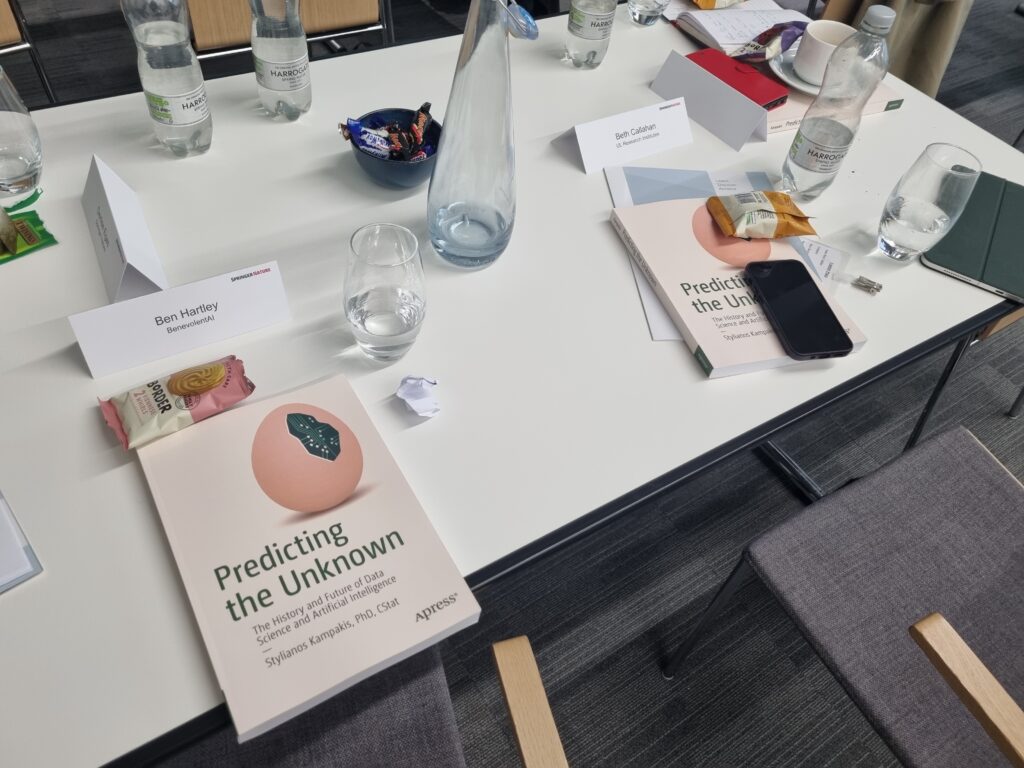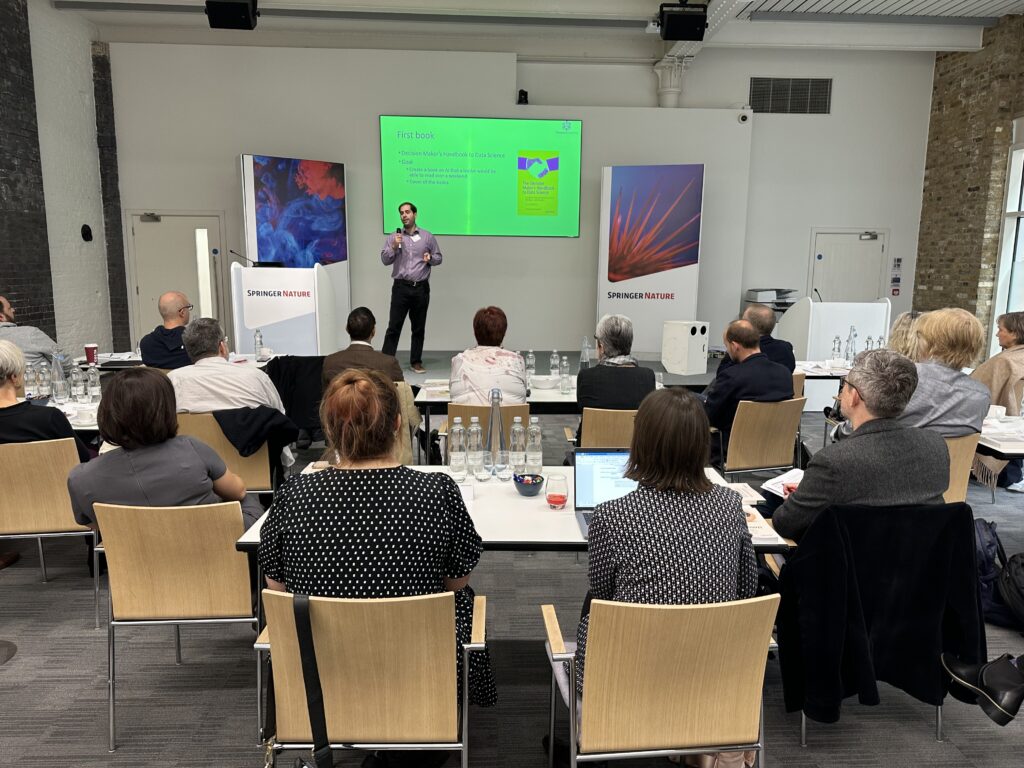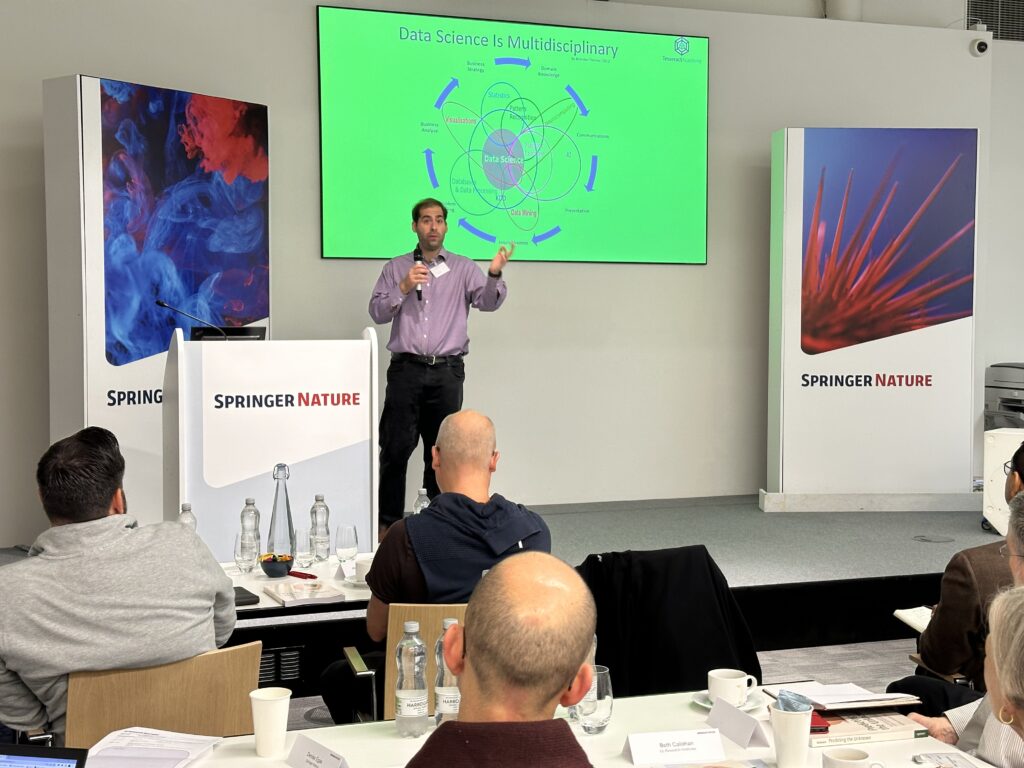As some of you might know, I have published 3 books in total on the topics of AI and data science, two of which were published under the umbrella of APress which is a Springer company. Springer is one of the biggest scientific publishing houses in the world.
I had the chance to participate at a Springer Nature event recently, where I presented the core concepts from two of my books which were published through them. I delved into key themes such as the basics of data science, the evolution and future trends of AI, breaking down the main ideas and providing insights into their practical and theoretical implications. I also shared my personal experiences of working as an author with Springer Nature, esp

ecially with Apress, and discussed the AI-aided processes I encountered.
One of the most delightful surprises was discovering that everyone had received a complimentary copy of my latest book “Predicting the Unknown – The History and Future of Data Science and Artificial Intelligence” ! I even had the chance to sign some of them! 🙂
I also had the chance to answer questions from the audience. Here are some of the things discussed.
- Data Collection in Organizations: Typically, organizations have a data strategy in place. Instead of collecting data, Data Scientists often analyze the provided data to determine its relevance. Outsourcing to AI consultants is becoming more frequent, especially in sectors like finance where quality data is paramount.
- Librarians and Data Analytics: The current tools librarians use for data analysis are often manual and rudimentary. While tools like Power BI are beneficial, understanding foundational data science principles is essential. Although Excel might not be the best tool for this purpose, integrating AI systems like Chat GPT, especially combined with Python, can enhance data analysis capabilities.
- Assessing Data Quality: It’s crucial to sample and scrutinize data for inconsistencies like missing values or typos. Predictive models and dashboards can aid in evaluating performance metrics, and when anomalies are spotted, they serve as indicators of potential issues.

- Bridging the Gap: Communication challenges persist between different domains like data science, blockchain, and library management. There’s a pressing need for resources that foster better understanding and communication between these sectors.
- Advocating for Data Science Budgets: When communicating the importance of data science to higher-ups, it’s pivotal to educate them. London, for instance, has a plethora of PhDs, yet there’s a noticeable gap in professionals who meld data science expertise with business acumen.
- Sharing Data and the Role of Publishers: Movements advocating for open data sharing are gaining momentum. Innovations like blockchain promote faster-paced research and exposure to fresh concepts. Yet, the challenge lies in attaining a critical mass for centralized systems.

- The Next Tech Wave: Quantum coupling and its role in propelling AI analysis are anticipated to be revolutionary in the tech space.
- Decentralised Science: For the scientific community to embrace movements like DeSci, it’s imperative to lower entry barriers, possibly with AI’s assistance.

